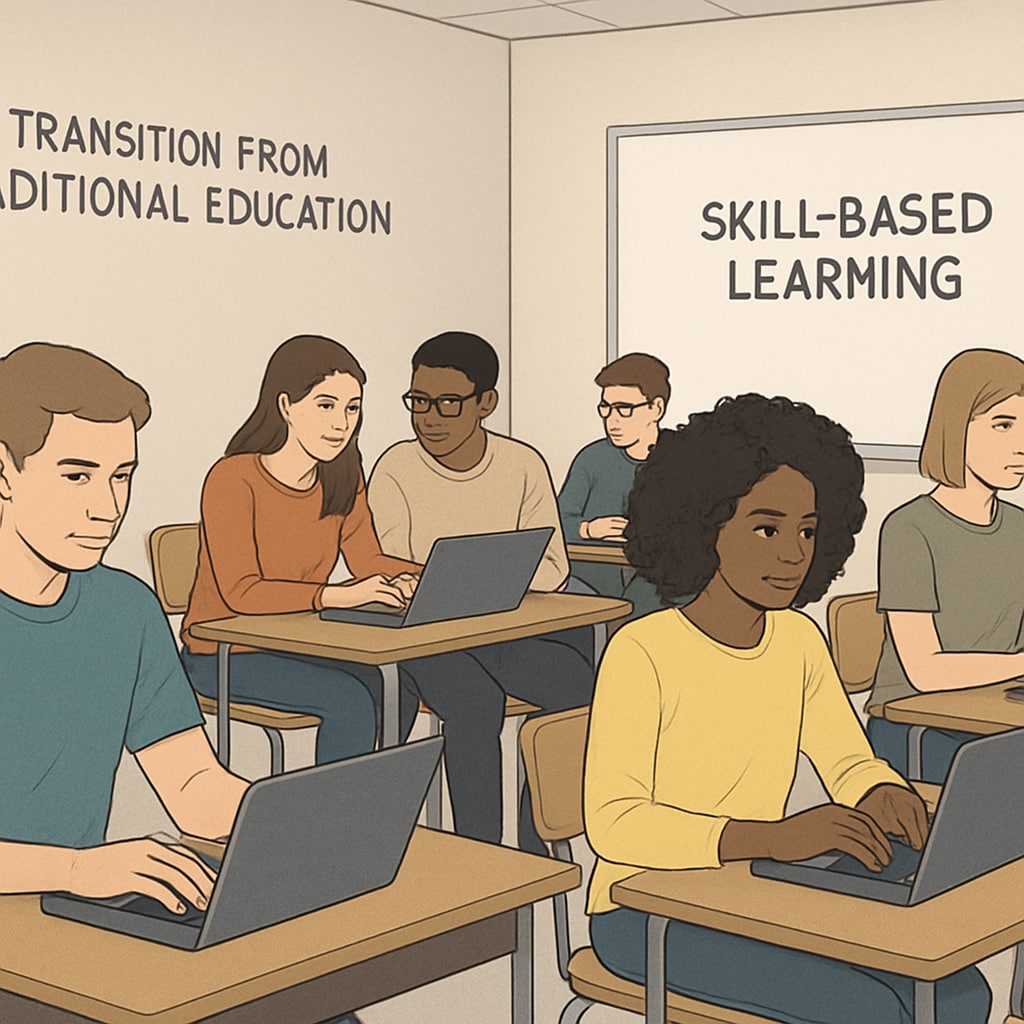Rising unemployment rates have sparked widespread debates about the value of education in securing employment. The traditional belief that academic excellence guarantees career success is increasingly being questioned. In an era where job markets are evolving rapidly, this article delves into the intricate relationship between education, academic performance, and employment outcomes. How relevant is a degree or high grades in today’s economic landscape?
The Shifting Dynamics Between Education and Employment
The notion that “good education equals good jobs” has been a cornerstone of societal expectations for decades. However, recent trends suggest this equation may no longer hold true. Industries are now prioritizing skills, adaptability, and real-world experience over mere academic credentials. For instance, the tech industry often values coding boot camps and project portfolios more than traditional degrees. According to a Britannica report on higher education, the widening gap between education systems and job market demands is a key factor contributing to unemployment.

Moreover, the rapid pace of technological advancements has rendered certain academic disciplines outdated. Fields like artificial intelligence and data science are growing exponentially, yet many educational institutions are slow to integrate these topics into their curricula. As a result, graduates often face challenges in meeting current job market expectations.
Are Academic Achievements Losing Their Shine?
Academic achievements, such as high grades and advanced degrees, were once seen as the ultimate markers of success. However, in today’s employment landscape, these metrics are being overshadowed by other factors. Employers now emphasize competencies like problem-solving, teamwork, and adaptability. For example, a report from the Wikipedia page on employment highlights how soft skills are becoming increasingly critical in hiring decisions.

Additionally, the overemphasis on academic performance can lead to skill gaps. Many students graduate with theoretical knowledge but lack practical expertise. This mismatch creates a labor market filled with qualified individuals who struggle to find jobs that align with their academic training.
Bridging the Gap: What Can Be Done?
To address the disconnect between education and employment, several measures can be taken:
- Revamping curricula: Educational institutions need to incorporate industry-relevant skills and emerging technologies into their programs.
- Promoting experiential learning: Internships, apprenticeships, and project-based learning can help students gain practical experience.
- Fostering adaptability: Encouraging lifelong learning and skill development can prepare individuals for evolving job demands.
Ultimately, a collaborative effort between educators, policymakers, and industries is required to ensure that education systems align with the realities of the job market. By doing so, we can equip future generations with the tools they need to thrive in a competitive world.
In conclusion, the rising unemployment rates challenge the traditional view of education as a guaranteed pathway to success. While academic achievements still hold value, they must be complemented by relevant skills and practical experience. As society moves forward, the education system must adapt to remain a meaningful contributor to employment opportunities.
Readability guidance: Short paragraphs and lists have been used to enhance clarity. Overuse of long sentences and passive voice has been avoided, ensuring a concise and accessible reading experience.


